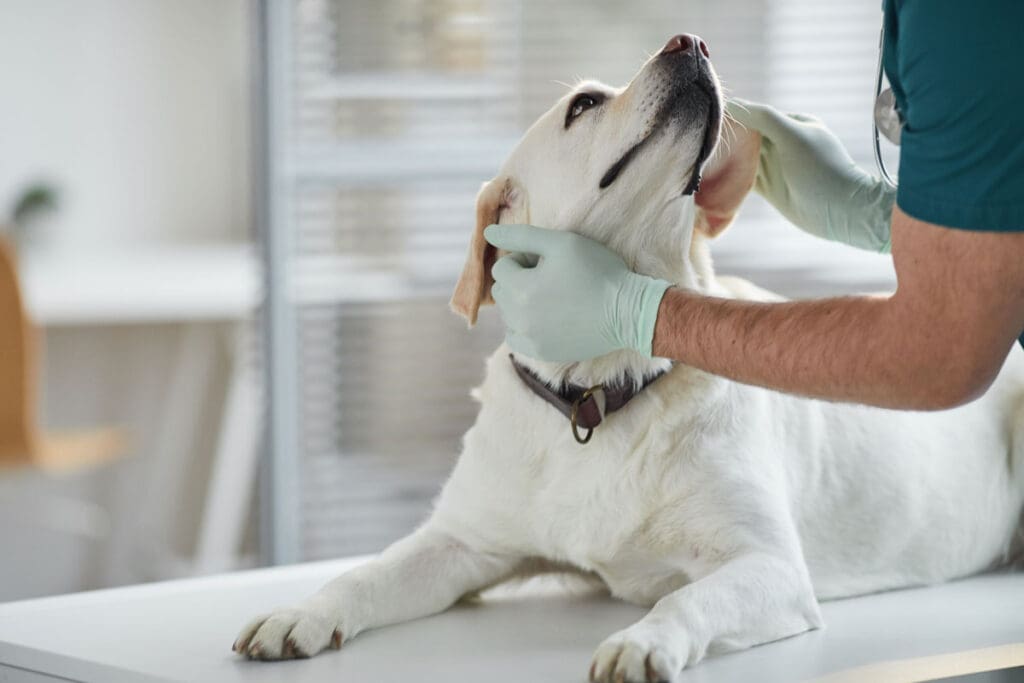Dogs have a relatively short lifespan, with the longest extending an average of only 15 years. However, many dogs can live longer with the right care, nutrition, and exercise. Here are 10 life-extension tips for your dog.
10. Investigate Your Dog’s Background

When choosing a dog, seek breeders with a reputation for producing healthy, well-balanced puppies. Ask lots of questions. Investigate the parent’s pedigree. Ask about the pup’s health screening and care during the first few weeks. If obtaining a rescue dog, ask the organization about the dog’s background, health, and vaccine status.
9. Dog-Proof Your Home

Eliminating hazards in your dog’s environment ensures a healthier, longer life. Dog-proof every area of your home and surrounding property. Look for anything that could fall. Look for anything that can be chewed that poses a danger. And look for any place your dog could escape from indoors or from your yard.
8. Give Your Dog Basic Obedience Training

Obedience training keeps your dog safe throughout its life. The best time to start training is when your dog is young. It’s more challenging with adults, but can be done. Teach your dog to come, leave it, sit, and lay down. An obedient dog will listen, allowing you to keep the dog from danger.
7. Feed Your Dog a Healthy Diet

Research what kind of diet your breed of dog needs for optimum health. Next, research various brands of food. Also, talk to your vet about the best food for your dog. You should be able to find a balance between your budget and quality food. Switching foods can cause stomach upset. Choose what’s best and stick with it.
6. Learn What’s Best for Your Dog

Do your research to learn everything you can about the breed of dog you have. Learn what makes them thrive and make sure to provide this for your dog. This includes diet, exercise, environment, and more. You’re likely to get unsolicited advice. Stick with what you know is best. Don’t allow anyone to put your dog in a dangerous situation.
5. Stay Educated on Dog-Related Issues

It’s important to stay up-to-date on what’s happening in the world. For example, food recalls happen frequently. These updates often break on social media before they reach mainstream news. Also, outbreaks of dog-related diseases may spring up in certain areas. For example, parvo cases. Keeping abreast of the latest developments can be life-saving for your dog.
4. Prepare for Emergencies

Emergencies can strike at any time. Make sure to keep an up-to-date pet emergency kit on hand. Keep emergency numbers for your vet and the nearest 24-hour animal emergency hospital. Have a way to get there day or night. Be prepared to save your pet. Learn how to apply a tourniquet, and bandages, perform the Heimlich maneuver, and pet CPR.
3. Save Money and Purchase Pet Insurance

As your pet ages, some health issues may arise. It’s wise to save your money for future medical costs for your pet. Some health expenses can be large, one-time events, or others may require medication and long-term care. Consider purchasing pet insurance to help you meet costs when major surgical issues or other costly medical expenses occur.
Read More: 10 Tips for Pet Owners Looking to Save Money
2. Preventative Care

Preventative care throughout your dog’s lifetime can help extend its lifespan. Take your dog for regular (annual or more as recommended) checkups with your vet and provide the recommended care your vet advises or prescribes. Professional grooming can help, as groomers often notice something with your dog’s body you may not.
Read More: What to Keep in a Pet First Aid Kit
1. Extending Your Dog’s Senior Years

In their senior years, dogs often need more care. Dogs may experience difficulty with walking, aches, become deaf, or go blind. Dogs may have difficulty eating and need softer food, and their bowl elevated to eat. Many products can make your dog’s senior years easier. Giving your dog supplements your vet recommends may help improve your dog’s quality of life.
Read More: 10 Reasons to Adopt an Older Dog






